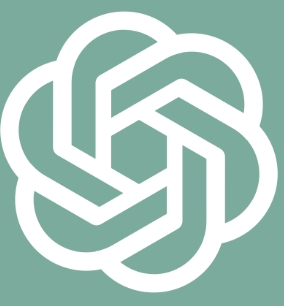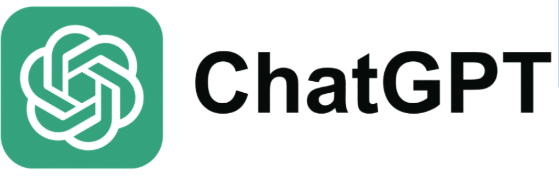In today's competitive job market, interview preparation has evolved beyond traditional methods. ChatGPT has emerged as a revolutionary tool that can transform how you prepare for and potentially navigate interviews. This comprehensive guide explores ethical and practical approaches to leveraging ChatGPT throughout your interview journey, from preparation to post-interview analysis. Whether you're a seasoned professional or a fresh graduate, understanding how to effectively use ChatGPT during interviews can give you a significant advantage.

Understanding ChatGPT's Role in the Interview Process
Before diving into specific strategies, it's essential to establish a clear ethical framework for using ChatGPT in interview contexts. ChatGPT can serve as your personal interview coach, researcher, and practice partner—but there are important boundaries to respect.
Ethical Considerations When Using ChatGPT for Interviews
The question of whether using ChatGPT during an actual interview constitutes cheating depends largely on the context and how you're using it. Generally speaking, directly using ChatGPT to answer technical questions or generate responses during a live interview is considered unethical and dishonest. Most employers expect candidates to demonstrate their own knowledge, skills, and thinking processes.
However, using ChatGPT extensively for interview preparation is widely considered ethical and can be incredibly beneficial. The key distinction lies in:
Preparation vs. Real-time Use: Using ChatGPT to prepare beforehand is ethical; using it to generate answers during the actual interview typically isn't.
Learning vs. Bypassing: Using ChatGPT to enhance your understanding of concepts is beneficial; using it to bypass knowledge requirements isn't.
Transparency: Being honest about how you've prepared if asked directly by interviewers.
How to Use ChatGPT for Interview Preparation
Researching the Company with ChatGPT
One of the most valuable applications of ChatGPT is in conducting comprehensive company research before your interview:
Industry Analysis: Ask ChatGPT to provide insights about the industry the company operates in, including recent trends, challenges, and opportunities.
Company Background: Request information about the company's history, mission, values, products/services, and recent news.
Competitor Analysis: Have ChatGPT generate a list of main competitors and comparative strengths/weaknesses.
Cultural Insights: Ask about the company's work culture, values, and what they typically look for in candidates.
Example prompt: "Can you provide a detailed analysis of [Company Name]'s position in the [industry] market, their recent initiatives, and how they compare to competitors like [Competitor 1] and [Competitor 2]?"
Generating Practice Interview Questions with ChatGPT
ChatGPT excels at creating tailored interview questions based on the specific role you're applying for:
Role-Specific Technical Questions: "Generate 10 technical interview questions for a [job title] position at a [industry type] company, focusing on [specific skills]."
Behavioral Questions: "What are the most challenging behavioral interview questions for a [job title] role, and what qualities are interviewers looking for in the answers?"
Company-Specific Questions: "Based on [Company Name]'s recent product launch of [Product], what questions might they ask to assess my understanding of their business strategy?"
Industry Trend Questions: "What questions might an interviewer ask to test my knowledge of current trends in [industry]?"
Crafting and Refining Interview Responses with ChatGPT
Once you have potential questions, ChatGPT can help you develop and refine your responses:
STAR Method Structuring: Ask ChatGPT to help structure your experiences using the Situation, Task, Action, Result format.
Response Evaluation: After drafting a response, ask ChatGPT to evaluate it and suggest improvements.
Alternative Perspectives: Request different approaches to answering the same question to broaden your perspective.
Conciseness Training: If you tend to be verbose, ask ChatGPT to help make your responses more concise while maintaining impact.
Example prompt: "I've prepared this answer to the question 'Tell me about a time you faced a significant challenge at work.' Can you evaluate my response for clarity, relevance, and impact, and suggest improvements?"
Advanced ChatGPT Techniques for Interview Excellence

Using ChatGPT to Simulate Mock Interviews
One of the most powerful ways to use ChatGPT is to conduct realistic mock interviews:
Role-Specific Simulations: "I want to practice for my [job title] interview. Can you act as an interviewer and ask me relevant technical and behavioral questions, then provide feedback on my answers?"
Company-Style Simulations: "Based on what we know about [Company Name]'s interview process, can you simulate their typical interview style and questions?"
Stress Interview Practice: "Can you simulate a stress interview for a [job title] position, asking challenging follow-up questions and creating pressure scenarios?"
Panel Interview Simulation: "Can you simulate a panel interview where you represent different stakeholders (technical manager, HR representative, team member) asking questions from their perspectives?"
Leveraging ChatGPT for Technical Interview Preparation
For technical roles, ChatGPT can be an invaluable preparation tool:
Concept Explanations: Ask ChatGPT to explain complex technical concepts in simple terms to ensure you can articulate them clearly.
Code Review: Have ChatGPT review your code solutions for common technical interview questions and suggest optimizations.
Problem-Solving Approaches: Discuss different approaches to solving technical problems, weighing the pros and cons of each.
Technical Terminology: Use ChatGPT to ensure you're using industry-standard terminology correctly and appropriately.
Example prompt: "Can you explain the concept of [technical concept] as if you were explaining it in an interview, then provide 3-4 follow-up questions an interviewer might ask to test deeper understanding?"
Preparing for Salary Negotiations with ChatGPT
ChatGPT can help you prepare for the crucial salary negotiation phase:
Market Research: "What is the typical salary range for a [job title] with [X years] of experience in [location]?"
Negotiation Scripts: "Can you help me draft a response to a salary offer of $X for a [job title] position when I was expecting $Y?"
Benefits Evaluation: "What questions should I ask about the benefits package for a [job title] position?"
Counter-Offer Strategies: "What are effective strategies for countering a salary offer that's below market value?"
ChatGPT During Different Interview Formats
Using ChatGPT for Remote Interview Preparation
Remote interviews present unique challenges and opportunities for ChatGPT assistance:
Technical Setup Optimization: Ask ChatGPT for a comprehensive checklist to ensure your technical setup is flawless.
Virtual Presence Enhancement: Request tips for improving your virtual presence, including body language, eye contact, and voice modulation.
Background and Environment: Get advice on creating an optimal interview environment, including lighting, background, and potential distractions.
Platform-Specific Tips: "What are the best practices for interviews conducted on [Zoom/Teams/other platform]?"
Preparing for AI-Conducted Interviews with ChatGPT
As AI-conducted interviews become more common, ChatGPT can help you prepare specifically for these unique scenarios:
AI Interview Pattern Recognition: Learn about how AI interview systems typically work and what they're programmed to look for.
Speech Pattern Optimization: Understand how to speak clearly and use keywords that AI systems might be scanning for.
Video Analysis Preparation: For interviews that use AI to analyze facial expressions and body language, get tips on presenting yourself effectively.
Adaptive Response Strategies: Learn strategies for responding to an AI interviewer's follow-up questions or prompts.
Ethical Use of ChatGPT During Actual Interviews
When and How to Use ChatGPT During Live Interviews
While using ChatGPT to generate answers during interviews is generally considered unethical, there are some limited scenarios where referencing AI might be acceptable:
Take-Home Assignments: For some take-home interview assignments, using ChatGPT as a research tool (while disclosing this) might be acceptable depending on the company's policies.
Research Questions: If explicitly permitted, you might use ChatGPT to quickly research factual information during certain types of interviews.
Framework Reminders: In some cases, quickly referencing a framework or structure you've previously studied with ChatGPT might be acceptable.
The key is transparency—if you're unsure whether using AI assistance is appropriate, it's best to ask the interviewer directly or err on the side of caution.
Disclosing ChatGPT Use Appropriately
If you've used ChatGPT extensively in your preparation or if the topic comes up:
Honest Preparation Disclosure: "I used various resources to prepare, including practice with AI tools like ChatGPT to simulate interview scenarios and get feedback on my responses."
Emphasizing Personal Knowledge: "While I've used ChatGPT to help structure my thoughts and practice explaining concepts, the knowledge and experiences I'm sharing are my own."
Highlighting Learning Process: "ChatGPT helped me identify gaps in my knowledge that I then addressed through further study and practice."
Post-Interview ChatGPT Strategies
Using ChatGPT for Interview Analysis and Improvement
After your interview, ChatGPT can help you analyze your performance and prepare for future opportunities:
Response Analysis: "Here's how I answered [question] in my interview. How could I have improved this response?"
Follow-Up Email Drafting: "Can you help me draft a thoughtful follow-up email to send after my interview for [position] at [company]?"
Pattern Recognition: After multiple interviews, ask ChatGPT to identify patterns in the questions you're receiving and areas where you might need additional preparation.
Continuous Improvement Plan: "Based on my interview experiences so far, can you create a personalized improvement plan focusing on [specific areas]?"
Leveraging ChatGPT for Long-term Career Development
Beyond immediate interview preparation, ChatGPT can support your broader career development:
Skill Gap Analysis: "Based on current job requirements for [target role], what skills should I prioritize developing?"
Learning Resource Recommendations: "What are the best resources to learn [skill] that frequently comes up in my interviews?"
Career Path Exploration: "What potential career paths could someone with my background in [field] explore, and what would the interview process typically look like for those roles?"
Personal Brand Development: "How can I better articulate my unique value proposition during interviews based on my experience with [specific projects/skills]?"
Common Mistakes to Avoid When Using ChatGPT for Interviews

Overreliance on ChatGPT-Generated Content
While ChatGPT is a powerful tool, becoming too dependent on it can backfire:
Memorization vs. Understanding: Memorizing ChatGPT's responses without truly understanding the underlying concepts can lead to awkward situations when asked follow-up questions.
Generic Responses: Using ChatGPT-generated responses without personalizing them with your own experiences can make your answers sound inauthentic.
Inconsistent Narrative: If different parts of your interview responses were generated separately by ChatGPT, they might lack cohesion or contradict each other.
Technical Depth Issues: For technical roles, ChatGPT might provide explanations that lack the depth expected of someone in the role.
Balancing ChatGPT Assistance with Authentic Self-Presentation
The most successful approach to using ChatGPT for interviews involves finding the right balance:
Use ChatGPT as a Coach, Not a Substitute: Let ChatGPT guide your preparation, but ensure your responses reflect your genuine knowledge and personality.
Internalize, Don't Memorize: Use ChatGPT to understand concepts deeply rather than memorizing specific phrasings.
Maintain Your Voice: After getting suggestions from ChatGPT, rework them in your own voice and communication style.
Practice Independence: As your interview date approaches, gradually reduce your reliance on ChatGPT to ensure you can think on your feet during the actual interview.
Conclusion: Maximizing ChatGPT's Value in Your Interview Journey
When used ethically and strategically, ChatGPT can be a transformative tool in your interview preparation process. From researching companies and practicing responses to simulating entire interviews and analyzing your performance, ChatGPT offers unprecedented support for job seekers.
The key to success lies in using ChatGPT as an enhancement to your own knowledge, skills, and experiences—not as a replacement for them. By maintaining authenticity while leveraging AI assistance for preparation and practice, you can approach your interviews with greater confidence, clarity, and competence.
Remember that the ultimate goal of interview preparation isn't just to get the job—it's to ensure the job is the right fit for you and that you're well-equipped to succeed once you start. ChatGPT can help you present your best self during the interview process, setting the stage for a successful career move.
